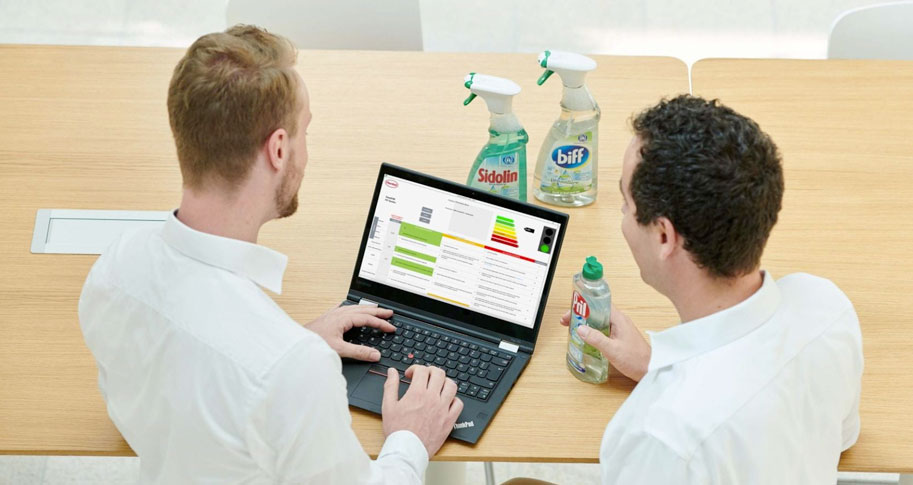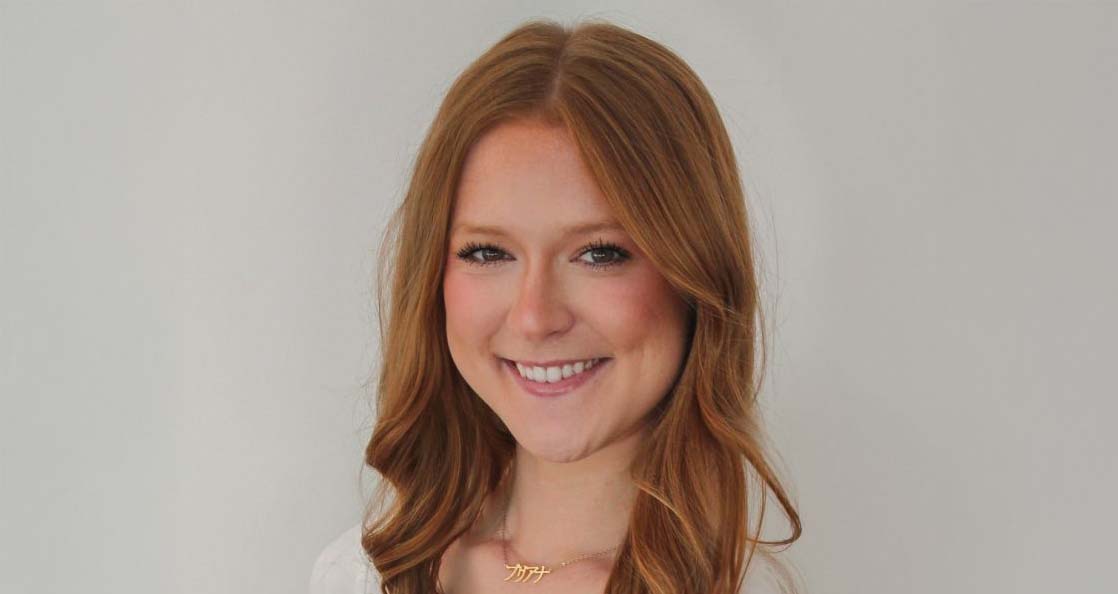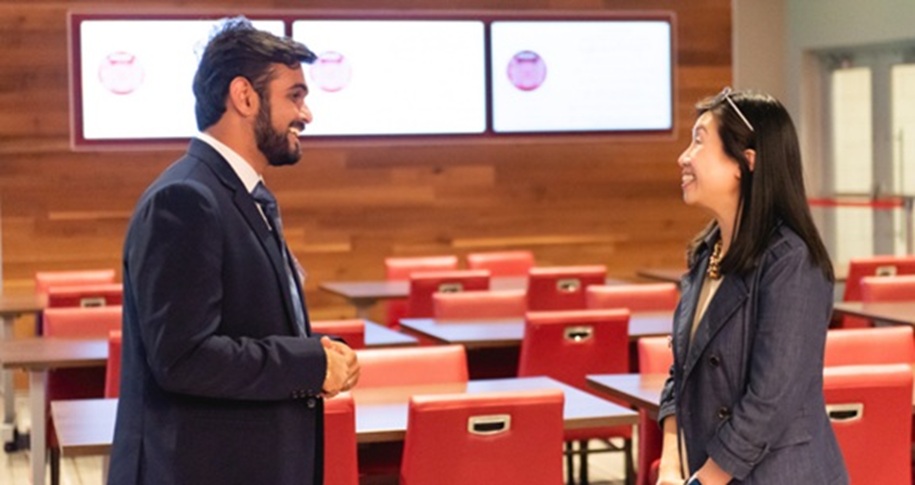
Corporate internships are a critical experience for MBA students. Experience gained in an internship expands learning beyond what can be taught in a classroom. Students experience firsthand how classroom lectures apply to work performed in the office. Elizabeth Arredondo, 2018 Walton MBA alumna, shares on the value of internships.
Internships create a deeper, long-lasting impact on students. Walton MBA students begin internships during their first year and spend roughly 20 hours a week working for corporate partners – in addition to their classroom hours. Successful internships can lead to offers of full-time jobs after graduation and help fast track a student’s career.
Internships are especially valuable to students who didn’t earn a business undergraduate degree. The Walton MBA program prides itself on having a diverse cohort of students from a wide range of backgrounds. Undergraduate degrees in our current cohort vary from business to food and life sciences, graphic design, hotel administration, psychology, musical theater and many more. The depth of knowledge and unique perspectives brought to class discussions by these other-than-business students adds to the learning of all students and helps to shape the culture surrounding the program. However, many of those students lack experience in a corporate environment. An internship helps fill gaps in their business knowledge with real world experience. For some students, it’s their first experience in an industry where they hope to spend their career.

Arredondo is now a category development manager at Henkel. The road to her MBA was not traditional. Arredondo graduated with an undergraduate degree in biology from the University of Arkansas in 2011. She returned to the University of Arkansas to pursue her M.S. in biology in 2014, studying ecology conservation and obtaining a graduate certificate in sustainability. This certificate introduced Arredondo to classes about the changing environment and gave her a better understanding of climate change, which ignited a passion for the environment that eventually altered Arredondo’s career path.
“[The classes I was taking] made me decide that I wanted to do something about climate change. I evaluated where I could have the biggest impact and realized a career in business was the best way. If we don’t change how we look at the environment from a business perspective, there won’t ever be a significant difference made to society. I reached out to Dr. Johnson [Professor at the University of Arkansas and Chairman of the Sustainability Consortium] because I knew he had ties to sustainable organizations in the business school and asked if he thought I could pursue a degree in business with a master’s in biology. He advised I get some business background as well; and that pushed me to get my MBA.”
Arredondo began her MBA in 2016. She says she lacked the business background of her peers and at first that was intimidating. Softer skills, like how to conduct herself professionally in team settings, how to dress for the office or how to prepare for meetings, were foreign concepts. Arredondo credits her student internship for helping her learn these and other essential skills.
“I really had no idea how the business world worked at all because I came from a biology background. In class I was learning a lot about abstract concepts, but I didn’t understand how to apply these to the workplace until I began my internship. So, the internship was helpful for me in terms of getting a grasp of what the business world was like and how to interact with people in different roles in the industry. It was truly my first experience in an office and a glimpse into what my career would develop into.”
Arredondo interned with Henkel in a rotational program. She worked in international sales, sustainability, sales analytics and finished her rotation working with the shopper insights team. The rotational aspect of the internship exposed Arredondo to a variety of roles within the company and gave her a holistic view of the retail industry.
She says the internship experience taught her a lot and she was often surprised by the work she was doing. The projects she worked on helped to transform her perspective on retail. She no longer viewed things as a consumer but analyzed everything within the context of business.
“I was shocked at how much goes into tracking small details in retail. How do changes in packaging help our sales? Where is the product being placed on the shelf? How do the retailer’s decisions impact us? I remember being surprised so much work was put into tracking how a product is performing at one retailer. Now I can’t go into a grocery store without walking past my product and examining its place in the aisle.”
Arredondo credits her significant professional and personal growth to her internship with Henkel. She said the uplifting culture of the company fostered a safe environment where she was able to learn how to conduct herself maturely and learned to make decisions confidently. After graduation, Arredondo was offered a full-time position with Henkel, where she was able to use her company and industry experience.
Arredondo encourages MBA students beginning internships to ask questions and approach every day eager to learn something new. She emphasizes that its worth asking for explanations as an intern. Managers expect new hires to be curious and will be more patient now compared to someone asking the same questions later in their career. She also urges students to be proactive and create their own learning opportunities in their internships.
“An office can be hectic sometimes, and so a manager may not always consider if their interns could learn from the opportunity at hand. I made sure to ask about meetings and see if I could sit in. You can learn a lot from watching the people around you. It pays off to step out of your comfort zone, insert yourself into situations and to ask questions. It shows initiative and that can make a big difference when companies are hiring for full-time positions.”





